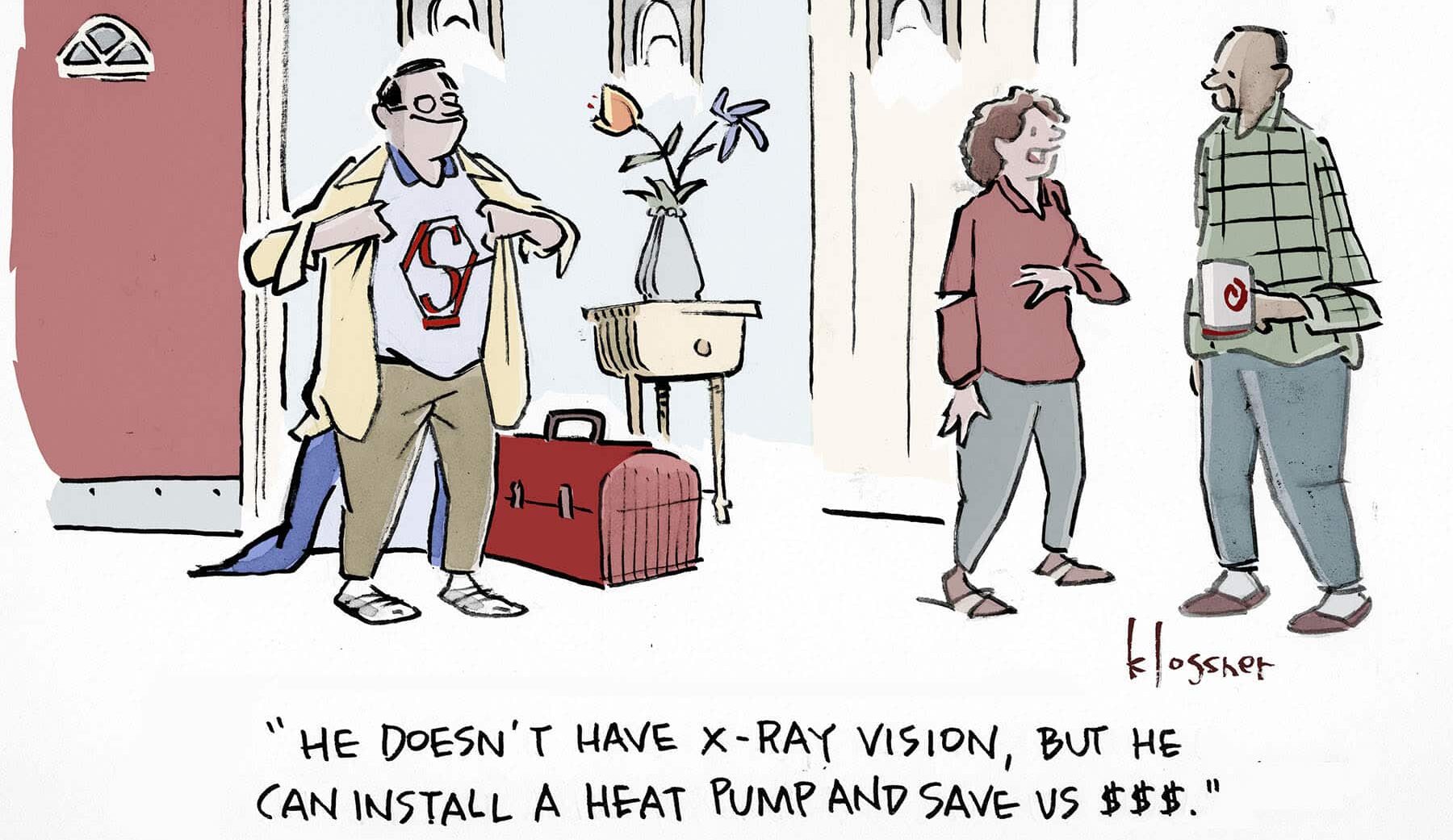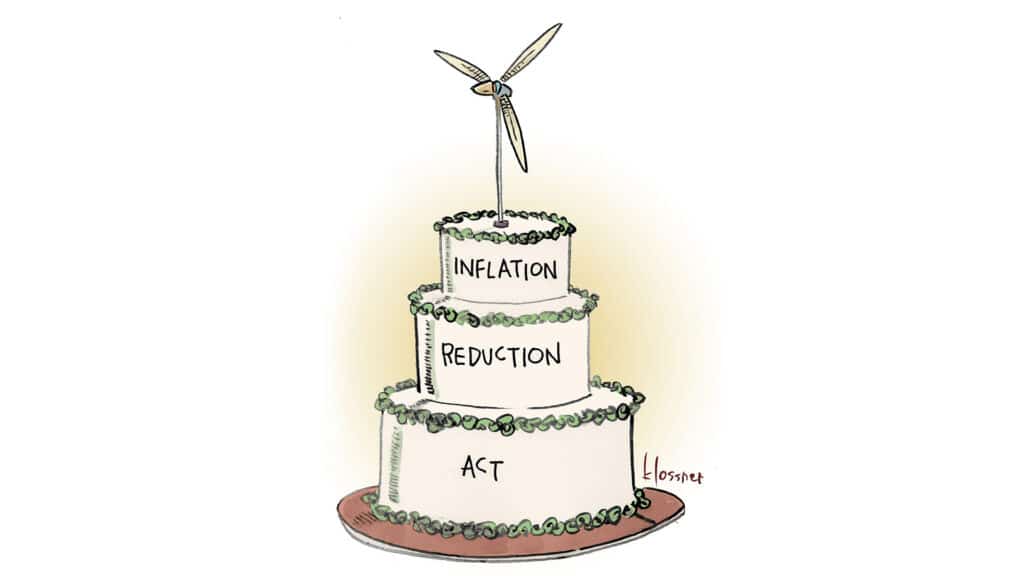Ever have a friend who did a kitchen or home remodel and loved their contractor? Did they send you countless pictures of their kitchen to the point you were ready to unfriend them? A great contractor is a gem, but here’s something even better: A contractor who knows how to make home electrification upgrades like heat pumps and other clean energy technology.
Why? Not only are these better for the climate, but there’s money on the table for Americans to make home energy and efficiency upgrades through the Inflation Reduction Act (IRA). These electric upgrades will save you money over time while making your home more comfortable. It’s important to find a contractor who can make these upgrades and understands the IRA rebates and tax credits (they will be expected to help with paperwork). Here are steps you can take to find a contractor that’s game to help you electrify your home.
Step 1: Home energy audit
The first step to improving the efficiency of your home is to complete a home energy audit. This assessment will help you understand energy use and loss in your home and prioritize cost-effective solutions that also make it more comfortable. Your state or local government energy offices and your electric company can help you understand local incentives and preferred contractors. The Inflation Reduction Act offers a 30% tax credit (up to $150) for qualifying home energy audits. Check out the Department of Energy’s Energy Saver to learn more about finding and selecting an energy assessor.
Once you understand where your home is most inefficient, you can build a plan to start improving home efficiency and comfort one project at a time. If your home is older, home weatherization – sealing air leaks throughout the home and ensuring effective insulation – can help save energy as a first step. Ensuring the home is sealed and well-insulated is also a necessary step to ensure the appropriate sizing for your heat pump.
Why do this now (instead of waiting until your AC goes out)
Upgrading inefficient gas appliances – such as your hot water heater or HVAC – might be a longer-term planning and waiting game. In 2022, the average car buyer spent nearly 15 hours researching and shopping before purchasing their vehicle. If you’ve ever had your air conditioner stop working in July, you know there is not that kind of time to find your replacement.
Be proactive instead. Check out ways you can electrify your home – and save money – by reading our Electrify Your Life page and guide. Read stories from real people – our Generation180 Ambassadors – like Andrea and Shannon, who have electrified their homes. Being able to articulate why you want to transition to clean energy will help any contractor understand your home project goals and what you’re looking for.
Find a few contractors in your area who can install a heat pump or heat pump hot water heater, so you’re ready for quotes when the appliance breaks. See if your state has a heat pump installer network. If not, call your trusted electrician, plumber, or heating and cooling company and let them know what you’re interested in. Your utility company may also have heat pump contractor lists. Or you can ask your neighbors, friends, family, or Gen180 Ambassador Community for referrals. Get multiple quotes on prices and project scope to make sure you’re getting the best price for work that is truly necessary.
Questions to help with interviewing contractors:
- Are you familiar with the Inflation Reduction Act (IRA) and local or state rebates?
- Do you regularly install heat pumps and do load calculations (a necessary step to understanding the right sized heat pump your home needs)?
- Do you or your distributor regularly have the most energy efficient appliances in stock?
- Can you connect me with past clients that you have helped transition from gas to electric?
- Will we need any upgrades to our electrical panel or breaker boxes with increased electric load?
Energy Star and Thumbtack also have some great hiring tips and resources.
Increasing how much electricity you use could mean you need upgrades to your electrical panel or breaker boxes. Don’t worry, there’s a tax credit in the IRA for that too. But it may require approval or involvement from your electric utility company. Find out if your contractor can dispose of your old appliance properly. If it’s still working, you may want to sell it. Or find a recycling location or charity.
While there are a lot of steps on the path toward transitioning from gas to electric, making a plan and having the right support can make all the difference. Need more inspiration? Join the Generation180 Ambassador Community and see what other people just like you are doing to electrify their lives.















